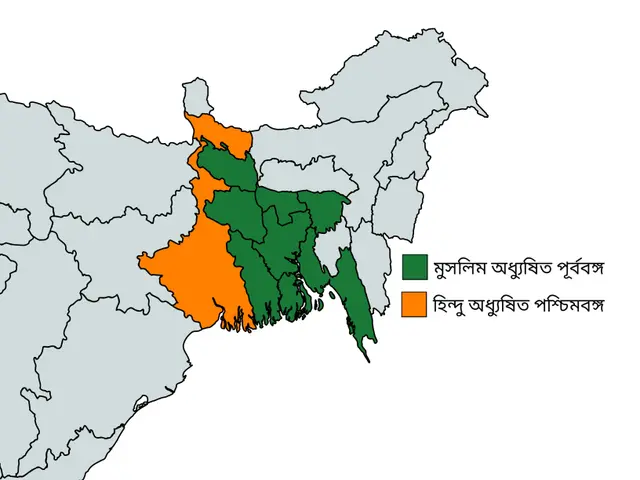Over one-fifth of Japanese youth prioritize video game expenses over basic living necessities.
Gaming and Finances: A Growing Concern Among Young Adults in Japan
The spending habits of young adults in Japan, particularly in relation to digital goods in video games, have drawn attention lately. A study by SMBC Consumer Finance reveals some alarming trends in this age group's financial management.
Unwise Financial Choices: Gaming Over Essentials
SMBC Consumer Finance's annual survey sheds light on how many young Japanese men and women are making financial decisions that prioritize gaming-related spending over necessities. Shockingly, 1 out of 5 young adults admitted to spending on in-game purchases at the expense of their living costs.
Men were more likely to engage in this behavior, with 22.8% of the male group opting for such financially questionable decisions, compared to only 14.8% of women.
The survey also showed an upward trend in the number of people who agreed with statements such as "I'm willing to pay for an advantage in-game" and "I can't enjoy the game if I don't make in-game purchases." This suggests that, for many, gaming enjoyment is directly linked to in-game purchases.
In-Game Purchases and Children's Gambling Addiction Concerns
Loot boxes have long been associated with gambling-like mechanics, albeit without definitive proof of equivalence. however, in the United Kingdom, GambleAware, a charity, has raised concerns about the potential for loot boxes and in-game purchases in video games to foster gambling-like behavior and related harm in children.
In an effort to highlight this issue, GambleAware unveiled an installation featuring 85,000 poker chips, representing the supposed number of child gambling addicts in the country. GambleAware believes that in-game purchases and loot boxes in video games contribute to such cases of gambling-related harm among children.
Image credit: Unsplash.com
Enrichment Insights
Here's a snapshot of key statistics and trends on in-game purchases among young adults in Japan:
- Financial Strain: About 18.8% of young adults admitted to spending so much on in-game purchases that they couldn't cover their living expenses.
- Regret Over Expenditure: 23.9% of respondents had regrets over their gaming-related purchases.
- Willingness to Spend for Advantages: Nearly 18% of participants were willing to pay for advantages in-game, with 23.8% of male participants saying the same.
- Average Monthly Spend: Despite more people spending on gacha games, the average monthly spend has decreased by 17.3%.
These statistics underscore the growing concern about the potential financial strain and mismanagement skills among young adults in Japan, as well as the impact of gacha games on their spending habits. It's crucial to educate young people on responsible gaming practices to mitigate these issues.
[1] SMBC Consumer Finance Annual Survey[2] SMBC Consumer Finance Gacha Games Survey (2025)
- Young adults in Japan have a growing concern over gaming-related spending, according to a study by SMBC Consumer Finance.
- The study shows that 1 out of 5 young adults in Japan prioritize gaming-related spending over essential living costs.
- Men are more likely to make financially questionable decisions, with 22.8% of the male group admitting to such behavior.
- The survey demonstrated an upward trend in people agreeing that they are willing to pay for an advantage in-game.
- The statement "I can't enjoy the game if I don't make in-game purchases" was agreed upon by many respondents, indicating a link between gaming enjoyment and in-game purchases.
- Loot boxes in video games have been associated with gambling-like mechanics, drawing concern from GambleAware, a UK charity.
- In response, GambleAware unveiled an installation of 85,000 poker chips, representing the supposed number of child gambling addicts in the UK.
- GambleAware suggests that in-game purchases and loot boxes in video games contribute to gambling-related harm among children.
- The financial strain due to in-game purchases is shared by about 18.8% of young adults in Japan.
- Over a quarter of respondents (23.9%) expressed regret over their gaming-related expenditure.
- Nearly 18% of participants were willing to pay for advantages in-game.
- Despite more people spending on gacha games, the average monthly spend has decreased by 17.3%.
- It is crucial to educate young people on responsible gaming practices to mitigate potential financial strain and skills mismanagement.
- The concerns about in-game purchases extend to other areas of life, including relationships, pets, travel, cars, books, education, personal growth, and more.
- imprudent spending on gaming can negatively impact various aspects of one's lifestyle, fashion, food, and even entertainment choices.
- Entertainment choices like movies, TV shows, and music can also be affected, potentially leading to missed opportunities in career development.
- A mismanaged gaming lifestyle can also impact one's search for employment or career development.
- The gaming culture, along with pop culture, also extends to casino-related games such as blackjack, big-wins, slots, lotteries, and casino personalities.
- Social media platforms play a significant role in promoting these entertainment options and shaping opinions through influencer marketing and advertisements.
- Casino-and-gambling trends and casino-culture have become mainstream and intertwined with pop-culture, sci-fi, and fantasy themes.
- General news and crime-and-justice sectors sometimes report instances of accidents related to gambling or addiction in gaming.
- Learning responsible gaming practices is essential to prevent future financial troubles and promote personal growth and skills training.
- Sports like football, Champions League, NFL, soccer, WNBA, baseball, hockey, European leagues, basketball, NCAA basketball, MLB, Premier League, American football, NBA, Serie A, LaLiga, and NCAAFootball can become secondary to gaming for some individuals.
- This imprudent spending and gaming prioritization can also affect one's interest in education, self-development, and even hobbies like reading books.
- More responsible financial management and set spending limits could help mitigate these issues and promote healthy financial decision-making.
- Gambling trends and casino games like poker, roulette, and casino culture have evolved and found their way into pop-culture and entertainment, including movies and TV shows.
- Celebrities, musicians, and other public figures are often associated with high-profile casinos and gambling events, further fueling the trend.
- Mismanaged gaming spending can create a vicious cycle of unemployment, isolation, financial strain, and greater dependence on addictive behaviors.
- It is important for society to provide resources and support systems to help those struggling with gaming addiction or irresponsible spending habits.
- By promoting financial education, skills training, and self-awareness, young adults can make more informed decisions about their gaming habits and overall lifestyle.
- Balancing gaming and finances is key to maintaining a healthy and fulfilling lifestyle, rather than letting gaming become a detriment to personal growth and well-being.








